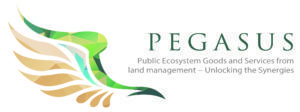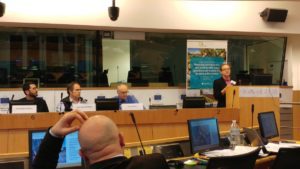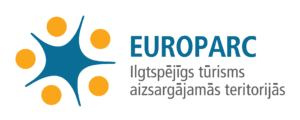PEGASUS Final Conference: How EU Agriculture and Forestry provide Public Goods & Ecosystem Services
©IEEP
The Committee of Regions in Brussels hosted the final conference of the “PEGASUS” project “Delivering environmental and social benefits from agriculture and forestry in a changing policy context” on 7th of February.

© PEGASUS
PEGASUS stands for ‘Public Ecosystem Goods And Services from farming and forestry – Unlocking the Synergies.’
The Horizon 2020 project brought together 14 organisations of 10 different EU countries, connecting experts from various disciplines including ecologists, rural sociologists, economists, geographers, policy analysts from academic institutions as well as NGOs and think tanks. Action research was at the heart of PEGASUS.
Objective of the research project was to develop innovative approaches and new ways of thinking about the way farmland and forests are managed, in order to stimulate a long-lasting improvement in the provision of public goods and ecosystem services from agricultural and forest land in the EU.
EUROPARC Brussels attended this event, to learn about the project’s results and to look for possible synergies between the outcomes and the Federation’s engagement to support approaches how sustainable agriculture and nature conservation can benefit each other.

© PEGASUS
The PEGASUS project adopted a strong participatory approach involving and engaging with both public and private stakeholders throughout its research process, to better understand – and tackle – the range of policy and practical challenges faced in different contexts.
Research was carried out widely, sourcing around 35 case studies, thus covering a wide spectrum of territories, sectors, management systems, etc. Aims were to examine the issues faced when trying to ensure effective provision of public goods and ecosystem services from farming and forest activities; and when working to find solutions allowing for the long term economic social and environmental sustainability of the EU’s farm and forest areas.
The debate during the conference showed that
the link between Protected Areas and agricultural actors cannot be overestimated – how the positive attitude of park managers is crucial to achieve fruitful and positive partnerships.
Throughout the project, a set of toolkits providing guidance and useful tips was synthesized from the experiences gathered. Valuable lessons can be learned from the toolkit ‘’Working Together to Build a Successful Initiative’’: a guidance and compendium of ideas for planning your own local initiatives or projects, encouraging more sustainable farming and forestry. It offers support to those who wish to involve stakeholders in collective actions towards enhancement of the provision of environmental and social benefits from agriculture and/or forestry.
The PEGASUS project results offered profound ‘’food for thought’’ for EUROPARC activities on sustainable agriculture in Protected Areas
The case studies collected, featured several Protected Areas – such as:
- Agriculture and forestry in Parc National des Cévennes in France
- Agriculture in natural parks in the Marche region in Italy
- Organic farming label in the mountain Murau region
- Social-Ecological Systems in the Biosphere Reserve Lungau
Find here all final conference presentations and workshop results derived throughout the project phase.
The freshly published toolkit is available for download here.
More background can be found on the dedicated PEGASUS website.
The final report can be accessed here: PEGASUS Final Conference – Highlights.
Quarrying in Parks and N2000 sites: looking for members with experience to share
For those whose parks or N2000 sites are/were affected by quarrying:
EUROPARC will be working with Sibelco, a sand quarrying company to look at some of the challenges of mitigating quarrying activities, especially for biodiversity.
We are looking for 5 members with experience of this who would be willing to work with EUROPARC and Sibelco to establish protocols, partnership and guidance for sites that have some impacts from the quarrying industry.
We need good case studies and volunteers from inside the EUROPARC membership.
A free workshop/technical meeting will be held in Belgium on 18/19th April.
If you are interested in sharing your experience and joining the workshop, please:
- contact EUROPARC to b.pais @ europarc.org with the topic “Quarrying in Parks”
- send a short description of the quarrying activities that take/took place in your Protected Area
- briefly tell us how your experience might be relevant to other Parks across Europe.
Feel free to share it with your colleagues across Europe. Together, let’s minimize impacts and support parks and companies better protecting our landscape and biodiversity values.
Kemeri National Park – Celebrating Sustainable Tourism in Latvian Wetlands
On February 1, just on the brink of World Wetlands Day, a special celebration was held in the Ministry of Environmental Protection and Regional development of the Republic of Latvia
The European Charter for Sustainable Tourism in Protected Areas Certificate was handed over to Ķemeri National Park (“Ķemeru nacionālais parks”) – a true wetlands park, comprising one out of the 6 Ramsar sites in Latvia.

Present during the event were Kaspars Gerhards, Minister for Environmental Protection and Regional Development and Juris Jātnieks, Director General of Nature Conservation Agency –public authority responsible for management of all PAs in Latvia.
The ceremony would have been incomplete without the presence of the KNP tourism forum – this time represented by resort rehabilitation centre “Jaunķemeri” , recreation centre “Valguma Pasaule” and local guide and souvenir producer Jānis Šlūke.

ECSTPA New Logotype. Existing in 5 languages – also in Latvian.
During the discussions the participants stressed the role of the Charter as the driving force for involvement of all stakeholders and the key to finding the right balance between preserving natural heritage and sustainable economic activity.
Everybody reiterated their determination and eagerness to continue the good work together towards excellence in sustainable tourism and development.It was already the second time Ķemeri NP was awarded the Charter.
The ceremony held in the Latvian Ministry of Environmental Protection and Regional development was a great opportunity to allow more of the people involved in the Charter process to come together and celebrate their common success and find it acknowledged at national level.
For more information on the celebration held in the Ministry of Environmental Protection and Regional development of the Republic of Latvia, please get in touch with Agnese Balandina (agnese.balandina_at_daba.gov.lv, Nature Conservation Agency, Pierīga Regional Administration, Manager of Nature Education Centre).
EUROPARC congratulates Kemeri National Park to this successful event and its re-awarding.
Back in December 2017, the official Charter Award Ceremony, hosted by the European Parliament and EUROPARC Federation, took place in Brussels and gathered all Protected Areas of the Charter Family that were (re-)awarded last year. Find here photos and the final report on the Charter Award Ceremony 2017.
Protected Area Voices Needed – How to make the most of EU Cohesion Funds post-2020?
These days European Commission is working on proposals for the EU Budget post-2020. PA managers are called to give their input to match financial priority setting with needs on the ground.
The next Multi-annual Financial Framework (MFF) will set priorities for investments in the context of growing challenges for the EU, and increasing competition for resources between the various policy areas where action needs to be taken. The Commission has launched several on-line public consultations to collect views of all the interested parties and citizens to identify on how to best allocate EU budget to Funds and Programmes. The results of the consultations will inform the preparation of the Commission’s proposals.
As key stakeholders involved in the management of cohesion policy, the European Commission wishes to encourage Protected Area managers, authorities and their partners, to take part in the public consultation on cohesion policy in order to share their views on how to shape the future of this policy.
Have your say: Promote PA perspectives in the consultation on Cohesion Funds. Public consultations close by the 8th of March!
You can do so simply by responding to the online questionnaire. Please consider that the questionnaire is accessible in all EU languages.
This introduction will give you some background on the consultation.
Feel free to disseminate further the information regarding this public consultation among your networks, including among direct beneficiaries of cohesion policy.
Your input will be highly appreciated and help the Commission design an effective cohesion policy for the coming decade.